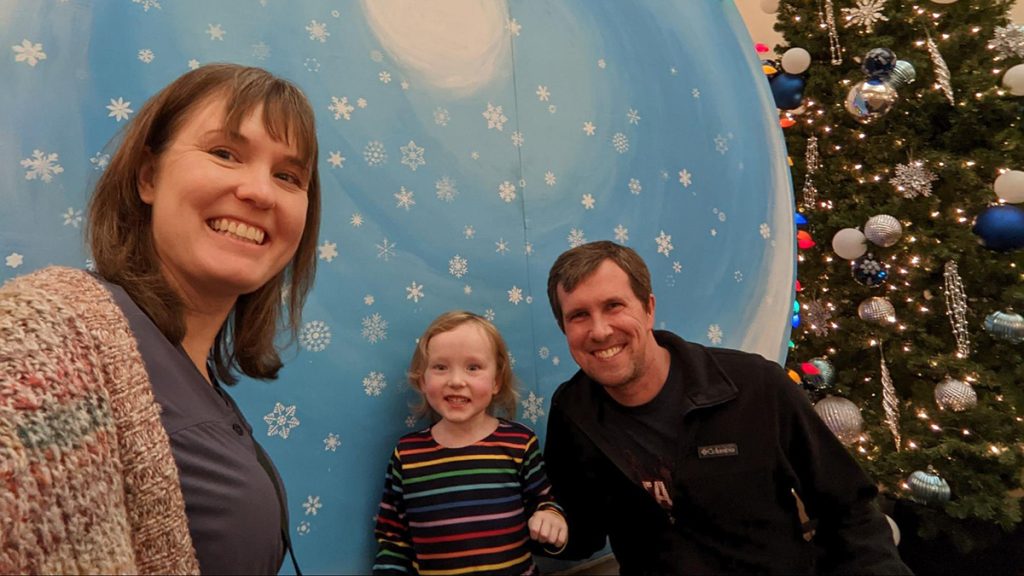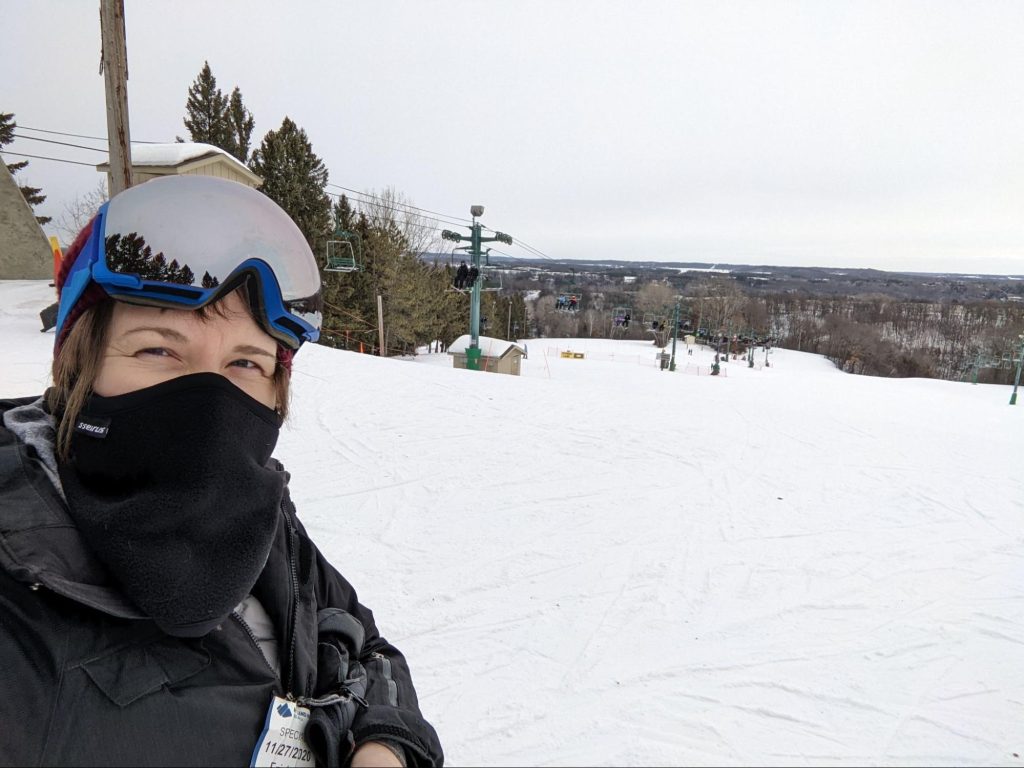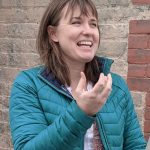
This is me with my husband Ben Decker and our kid Jude on December 10, 2022, when we were all healthy enough to see a holiday show in St. Cloud, MN.
How being a solopreneur has forced me to reckon with my limitations
Learning to set boundaries while I launch a news organization — amid a pandemic — is as important as learning to market and fundraise
I am in bed, nearly asleep on a chilly October night. I’m especially tired after leading a two-hour virtual training. I have another training tomorrow, both of which are necessary to bring in much-needed revenue for my news startup, Project Optimist. And I need sleep. I tested positive earlier in the day for COVID-19. My second time this year.
Then my child starts to scream for me in the next room. I feel my shoulders and lower back tighten, though I try to relax them. My kid wakes up every hour, crying in pain because of terrible sores on his tongue. He has hand, foot and mouth disease (yes, that’s a real thing). And he’s home from preschool all week.
The day prior he and I had our first real talk about death. Our neighbor put his oldest dog to sleep, and I started explaining impermanence to my 3.5-year-old. He had a lot of questions. “Are you going to die, mama?” “Am I going to die?” “Can we talk when we’re underground?” “Where do we go after we leave our body?” Oh boy.
These are fundamental human experiences. I was reckoning with my human frailty and shepherding my child through brushes with sickness and death. I was also trying to reschedule my week of meetings and interviews and wondering if I could stay on track with my marketing, fundraising and editorial plans. I couldn’t. And at that point, I didn’t want to try.
I was not the only news entrepreneur put in this position during the pandemic. My fellow members of the Tiny News Collective and LION Publishers occasionally showed up to meetings with cameras off, explaining in stuffed-up voices that they were still recovering from their latest COVID infection.
I knew that working would likely delay my recovery. And I wanted to get healthy. I wanted to unplug from my phone and computer, direct my energy to my sick child and show compassion to him and to myself.
So I tried my best. I led a short training and then crashed for the rest of the day. I canceled most of my plans and tried to recuperate with my kid. This was possible thanks to my spouse, Ben, who picked up the slack at home. He was the one responding to the middle-of-the-night cries.
Lessons of work life balance
I am preparing Project Optimist to be the employer I always wanted, one that recognizes staff as whole human beings at work and in their personal lives. Knowing that I will be at the helm, I need to model that behavior and mindset now.
Isn’t this why so many people left their jobs in the so-called Great Resignation? It’s one of the reasons I left my newspaper gig. I wanted a different kind of work culture that allowed me to set better boundaries and avoid burnout.
I believe the journalism industry and society at large have long valued hustle and bare-knuckled grit to the detriment of workers’ health and relationships. We’re steeped in a scarcity mentality. We have to get the story first, even if it means showing up early, staying late, again and again. That’s how I started my career as a reporter. Ben used to add two hours to my estimated time home, because I always stayed late.
I carried that scarcity mentality with me into my work as a solopreneur. If I didn’t work fast enough, I feared I would lose funding opportunities or partners. I have tried to dismantle those assumptions. But it’s slow, internal work.
To defend against burnout, I guard my family time and hobby time, workouts and hangouts. I’ve gone skiing twice this winter, and it took me a good hour each time to stop thinking about work. But standing at the top of a black diamond in the freezing cold finally snapped me into the present moment.

I believe this time off provides clarity and fuels creativity that help me do the work needed at Project Optimist. But the boundaries need to be there. I need to be able to check out and have profound or silly time with my child.
My kid is now endlessly curious about death. We talk every day about the mortality of family members, pets, historic figures and fictional characters. We’ve really gone deep on Scar’s murder of Mufasa in “The Lion King.”
I am not always great at holding boundaries. I check my phone during family time. I work late at night. But I’m developing work life balance skills as I also hone my skills as a fundraiser, marketer, trainer and editor. Avoiding burnout is key to the health of Project Optimist and to my health — to the life of my organization and my quality of life.
Tips for work / life boundaries
- Keep the phone out of your bedroom.
- Put personal priorities on a to-do list, alongside work tasks to work into your days/weeks. That might include: Meditate for five minutes. Call a friend. Schedule a therapy appointment.
- Turn off notifications on your email app, don’t make emails a priority to answer instantly. People can wait. Include your working hours on your signature so people know when you’ll be working to respond.
- Work is never done by the end of the day or the end of the week. There will always be something more to do, more work to come.

Comments